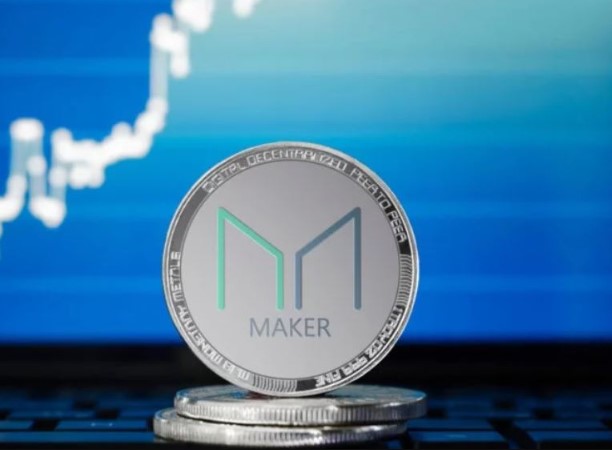
Maker Coins: Empowering Communities Through Blockchain Technology

In the world of cryptocurrency, Maker Coins have emerged as a revolutionary tool for empowering communities and driving decentralized ecosystems. From their humble beginnings to their widespread adoption today, Maker Coins have transformed the way we think about value, ownership, and participation in digital networks.
History of Maker Coins
Maker Coins, also known as utility tokens, have their roots in the early days of blockchain technology. Satoshi Nakamoto’s groundbreaking Bitcoin whitepaper laid the foundation for decentralized currencies, inspiring developers to explore new possibilities. Over time, as blockchain technology evolved, developers began to experiment with smart contracts, programmable tokens that could represent various assets and functions within a decentralized network.
How Maker Coins Work
At their core, Maker Coins leverage blockchain technology to create decentralized ecosystems where users can transact and interact without relying on traditional intermediaries. Smart contracts, self-executing contracts with the terms of the agreement directly written into code, enable the seamless exchange of value between participants. Tokenomics, the economic principles governing the distribution and use of tokens, play a crucial role in shaping the dynamics of Maker Coin ecosystems.
Benefits of Maker Coins
One of the primary benefits of Maker Coins is their ability to promote decentralization, allowing communities to govern themselves and make collective decisions without centralized authority. By incentivizing participation through token rewards and governance mechanisms, Maker Coins empower users to take an active role in shaping the future of the platforms they use. Additionally, Maker Coins can serve as a powerful tool for incentivizing specific behaviors, such as contributing to a project or participating in a community event.
Use Cases of Maker Coins
The versatility of Maker Coins has led to a wide range of use cases across various industries. In the gaming sector, for example, Maker Coins can be used to create in-game economies where players can earn tokens for completing tasks or achieving milestones. Similarly, businesses can leverage Maker Coins to create rewards programs that incentivize customer loyalty and engagement. Additionally, Maker Coins have been used to facilitate crowdfunding campaigns, allowing individuals to raise funds for creative projects or charitable causes.
Popular Maker Coins
Several Maker Coins have gained prominence in the cryptocurrency space, each offering unique features and capabilities. Ethereum’s Ether (ETH), for instance, serves as the native currency of the Ethereum blockchain, powering smart contracts and decentralized applications (DApps). Other examples include Binance Coin (BNB), which is used to pay for transaction fees on the Binance exchange, and Uniswap’s UNI token, which grants holders voting rights in the protocol’s governance.
Challenges and Risks Associated with Maker Coins
Despite their potential, Maker Coins also face challenges and risks that must be addressed for widespread adoption. Regulatory uncertainty remains a significant concern, with governments around the world grappling with how to classify and regulate cryptocurrencies. Security vulnerabilities, such as hacks and exploits, pose another threat to Maker Coin ecosystems, highlighting the need for robust security measures and best practices.
Future Outlook for Maker Coins
Looking ahead, the future of Maker Coins appears promising, with continued innovation driving their evolution. As blockchain technology matures and becomes more scalable and efficient, Maker Coins are likely to play an increasingly important role in shaping the digital economy. Moreover, the integration of Maker Coins with other emerging technologies, such as artificial intelligence and the Internet of Things (IoT), could unlock new opportunities for decentralized applications and services.
Conclusion
In conclusion, Maker Coins represent a powerful tool for empowering communities and driving decentralized innovation. By harnessing the capabilities of blockchain technology, Maker Coins enable new forms of value creation and collaboration, paving the way for a more inclusive and transparent digital economy.
FAQs
- What is a Maker Coin?
- A Maker Coin is a type of cryptocurrency that is designed to serve a specific purpose within a decentralized ecosystem.
- How are Maker Coins created?
- Maker Coins are typically created through a process called token generation, where developers deploy smart contracts on a blockchain network.
- What can Maker Coins be used for?
- Maker Coins can be used for a variety of purposes, including incentivizing participation, facilitating transactions, and governing decentralized platforms.
- Are Maker Coins regulated?
- The regulatory status of Maker Coins varies depending on the jurisdiction, with some countries imposing restrictions or guidelines on their use and issuance.
-
How can I get involved with Maker Coins?
- You can get involved with Maker Coins by participating in decentralized platforms that use them or by investing in projects that issue them.